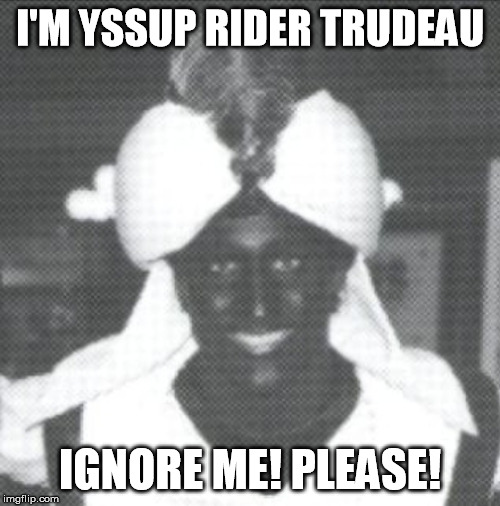Bernie may have blown it. Yeah, already. But not because the Democratic front-runner “plummeted” into the shameful spot of receiving “only” the most votes in the first two primaries—which is how a plethora of talking heads in the cable news business comically tried to dismiss his victories in Iowa and New Hampshire. Instead, despite a massive ground game in key primary states, Bernie may have screwed up in a more serious way—by drastically underestimating his opponents inside the Democratic Party establishment.
Over the weekend, Michael Bloomberg’s amply funded media operation floated the notion of a potential superteam of the New York billionaire and his friend Hillary Clinton as running mate. If it wasn’t obvious already, this highly orchestrated weekend news bump reveals something essential about the intent of a “surging” Bloomberg’s unprecedented attempt to buy votes and influence: He’s trolling Bernie and his supporters.
Specifically, Bloomberg is intent on splitting the race between Bernie, himself, and another “centrist” (Buttigieg or Klobuchar). Bloomberg’s electoral strategy is premised on one goal and one goal alone: to prevent Bernie’s movement from winning a majority of the delegates to the Democratic National Convention. By amassing the minimum number of delegates to stop a first-ballot Bernie convention victory, Bloomberg and the other “centrists” would trigger the entry into the ring of the Democratic “superdelegates” in a tag-team jump off the top rope, in which the party establishment regains control just when they were desperately in need of a breather.
Here’s how Bloomberg’s maneuver works: Due to Bernie supporters’ post-2016 demands, the party’s new nomination rules stipulate that the superdelegates can enter the fray only on the second ballot—meaning in the event that a candidate cannot amass a full first-ballot majority. The Bloomberg campaign and the more than $350 million it has already spent—and the hundreds of millions more it intends to spend between now and July—therefore exist for one purpose and one purpose only: #NeverBernie.
 ‘The Peoples Party Convention—Delegates Who Were Not in It,’ caricature from 1892 (Photo: Library of Congress)
‘The Peoples Party Convention—Delegates Who Were Not in It,’ caricature from 1892 (Photo: Library of Congress)Surreally, the Democratic Party is heading toward a WWE-style Summer Smackdown of two Jewish stereotype/archetypes: The billionaire capitalist who has watched Citizen Kane too many times (and missed the point, apparently) and the Brooklyn-born, billionaire-slaying socialist who has watched Spartacus too many times (also missing the point, apparently). No matter how many $27 contributions the sling-wielding Bernie rakes in, does it really seem wise to bet on a septuagenarian recovering from a recent heart attack who everyone in the establishment media is intent on destroying?
A deceitful Democratic establishment counterinsurgency campaign was entirely predictable. The Clintons’ star might be fading, but the anti-labor, free-trade, corporate-controlled culture of the Democratic Leadership Council they helped found still maintains a stranglehold on the party and the 50 state apparatuses that answer to the DNC. It is in this context that Bernie supporters have become obsessed with the connections between the developer of Iowa’s vote-counting Shadow app to former Clinton campaign head Robby Mook; the Iowa Democratic Party’s strategic release of numbers for suburban counties favorable to their favorite Mouseketeer; and DNC Chairman Tom Perez calling for a recanvassing within minutes of Bernie pulling ahead in the vote totals. In the minds of Bernie supporters, it all points toward one thing: The Clintonista DNC/DLC corporate Democrats never had any intention of playing fair.
For nearly any honest observer, the Democrats haven’t been the pro-labor, tax-the-wealthy, statist liberalist party of Franklin D. Roosevelt and Lyndon Johnson for at least 30 years, if not 40. Like the European aristocrats of old, which Democratic Party elites and their media cohort shamelessly—even if unknowingly—aspire to emulate, establishment liberals see the electoral portion of the American left as theirs. They alone are entitled to lead the ignorant masses toward enlightenment; a vision they have conveniently insisted on seeing as social justice—sans economic reform—for quite some time now.
For those interested in Bernie’s social democratic “revolution,” the notion of starting where Ralph Nader left off deserved much more of a serious debate than it ever received in the American socialist literati scene of Jacobin, Dissent, n+1, etc. In 2017, a small group of former Bernie staffers and supporters saw the DNC counterinsurgency coming and begged Bernie to abandon the Democratic Party and instead finish what Nader started nearly 20 years earlier. Rather than look to the still-flailing Green Party, they encouraged Bernie to restart the People’s Party, which was the original populist movement of the late 19th century—possibly not fully realizing the experience they were encouraging Bernie and his followers to recreate.
Despite some obvious and disturbing anti-Semitism in its ranks, the rise of the original People’s Party and the populist movement of the 1890s is one of the most unique stories in American political culture. Considered in full, the populists quite possibly represent the American heartland’s only organized form of mass resistance to the rise of corporate capitalism, Lockean liberalism, and laissez faire market ideals that formed the core of the American liberal political consensus. However, the melancholic dissolution of the People’s Party into the Democratic Party in 1909 is also one of the most depressing moments in American history. In many ways, we are still living through the wreckage of these original populists’ decision to lay down their arms.
The new website for the Movement for a People’s Party looks great (minus their less than impressive list of endorsements), but reading through their documents online, it feels like these folks have no idea how to build a workable coalition that would accomplish anything more than offering another iteration of the Green Party or, worse yet, the little-known U.S. Labor Party.
Yet while the Movement for a People’s Party may not have a workable plan for how to build an effective third-party challenge, it doesn’t mean such a thing could not be done. There is a truck-size opening in the marketplace for a new political party. However, the electoral hole alluded to does not take the shape the new People’s Party thinks or many other Bernie fans might prefer.
***
A great many recent polls show that the majority of Americans dislike and distrust both political parties. Post 2016, Sanders has had the name recognition, the gravitas, and the crossover appeal with independents to pull off a real challenge to what Nader used to call the “two party duopoly.” The problem is that such a party would likely look like a multiracial working-class coalition with crossover appeal to both Bernie’s supporters and Trump’s (saner) supporters—a “Red Tory” coalition of populist anti-establishment groups; the Venn diagram space between Jacobin and American Affairs, if you like. This hypothetical new party could deflect some of the inevitable “spoiler” insults hurled their way by offering—in the early stages of its development, at least—to drop out and provide an endorsement to either party should one effectively match their platform or specific demands.
Recent polling data from the Voter Study Group supports the notion that “fiscally liberal but socially conservative” is now the most underserved—and also possibly the largest—part of the American electorate. Along with this, last year’s Hidden Tribes study illustrated that most Americans hate “PC culture”—with most nonwhites disliking those who attempt to dictate manners to them at even higher rates than whites do. Are the ex-Bernie-ites willing to compromise on immigration policy or perhaps be a tad less obsessive and dictatorial in their social justice rhetoric—and if not, is there really any hope for a left/right populist coalition that meets the needs of working Americans?
While the nascent People’s Party may not lead the way, there is a greater possibility of a left/right populist coalition coming together than most would anticipate. You can see it in vitro on the small screen at Hill TV’s new online series Rising, which offers thoughtful and informed takedowns of the Acela corridor consensus. The show’s hosts Krystal Ball and Saagar Enjeti’s double-dragon populism offers enough ideological contrast and genuine anti-establishment moxie to make the show something entirely new in American broadcast media, and its message seems to be resonating. Last October, Rising hit 100,000 subscribers; since then, they have nearly tripled that amount. Their upcoming book, The Populist’s Guide to 2020, is now No. 4 in the category of “Elections” on Amazon’s current book sales.
The Hill TV series’ success might signal a growing openness and hunger within the American electorate for a new left/right populist coalition, but could it ever translate to the ballot box without an established high-name-recognition figure like Bernie Sanders leading the crusade? We may yet find out, because if Sanders wins a plurality of the Democratic convention delegates, which seems likely, and is again denied the nomination through establishment conniving and chicanery, it’s hard to see the self-proclaimed socialist walking quietly into the sunset a second time in order to please the Democratic Party establishment.
For his part, Michael Bloomberg is many things, but a fool ain’t one of them. Having just qualified for tonight’s debate in Nevada, but having missed every debate and primary before then, he is certainly aware that he can’t amass an outright majority of the Democratic delegates—and that even a plurality is probably out of reach for a late-starting ex-Republican running in a four or five candidate race. Bloomberg probably even knows that if Bernie garners the plurality of the delegates, and party superdelegates intervene to hand the nomination to him or another centrist, with or without Hillary as a running mate, it is likely to erect a Berlin-wall-size divide in the party that won’t go away anytime soon. Does Bloomberg really imagine joining hands with Bernie and Alexandria Ocasio-Cortez on the last night of the convention and then buying off Bernie supporters with truckloads of free iPhones and iPads as he barnstorms across the country to defeat the hated Trump? It won’t happen.
In fact, the most likely consequence of Bloomberg swiping the nomination from Bernie would be the reelection of Donald Trump. So why bother? The answer is that a Bloomberg primary win, even combined with a Trump win in the general election, would send a clear message that the Democratic Party is a pro-Wall Street, pro-corporate, technocratic organization.
If Bloomberg is, as I suspect, aware of the stakes here, he is playing a particularly perverted game of chess designed to drive the Berniecrats into the wilderness—which is exactly how the Democratic Party disposed of the original People’s Party challenge early on in the 20th century.
An interesting read on how the DNC will screw Bernie over two cycles in a row.
Cross-Over - Vote Bernie in your primary - defeat the evil H... and DNC machinations.!!!
Bloomie should be very afraid of this - If elected POTUS and H... as VP - he won't survive long.




